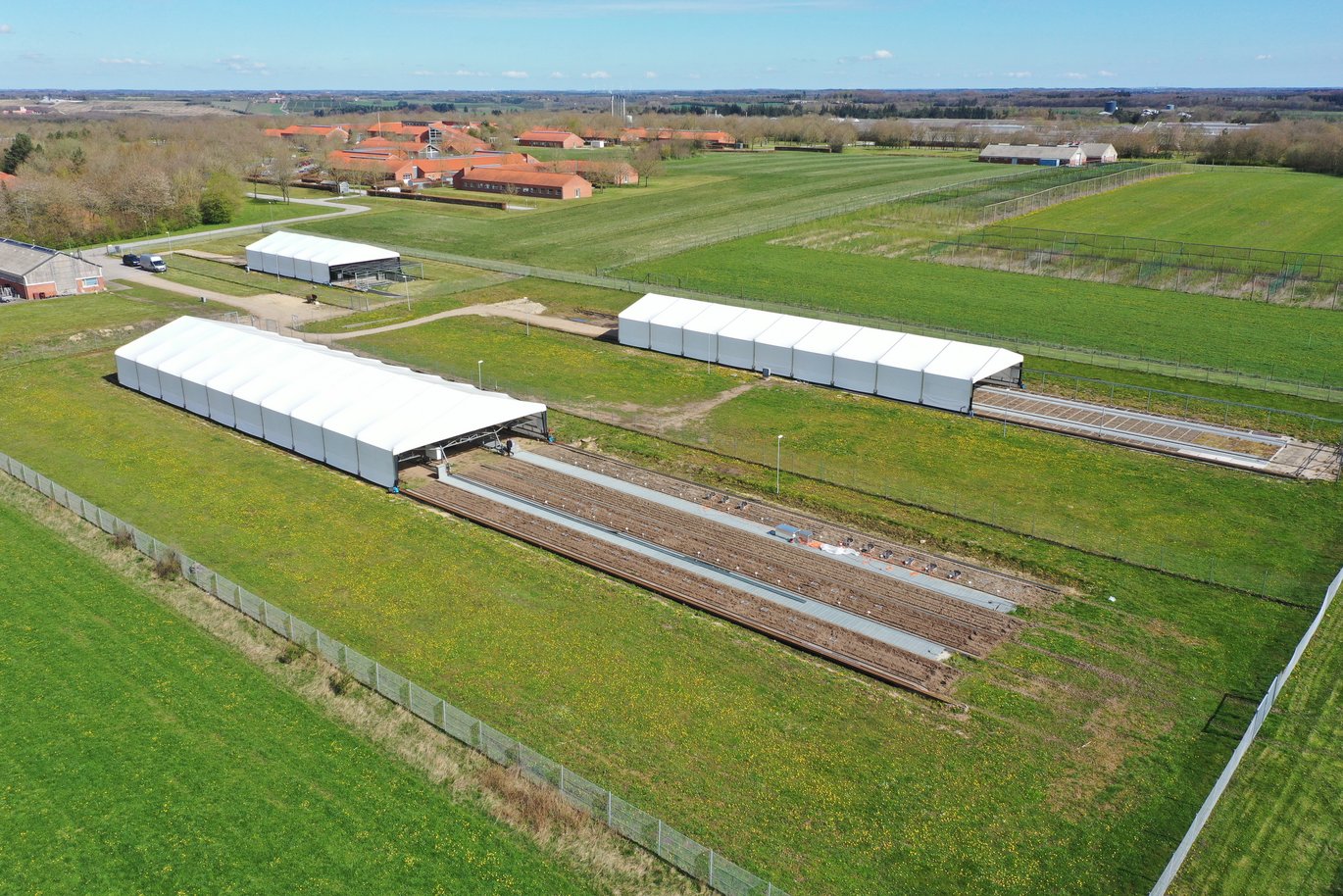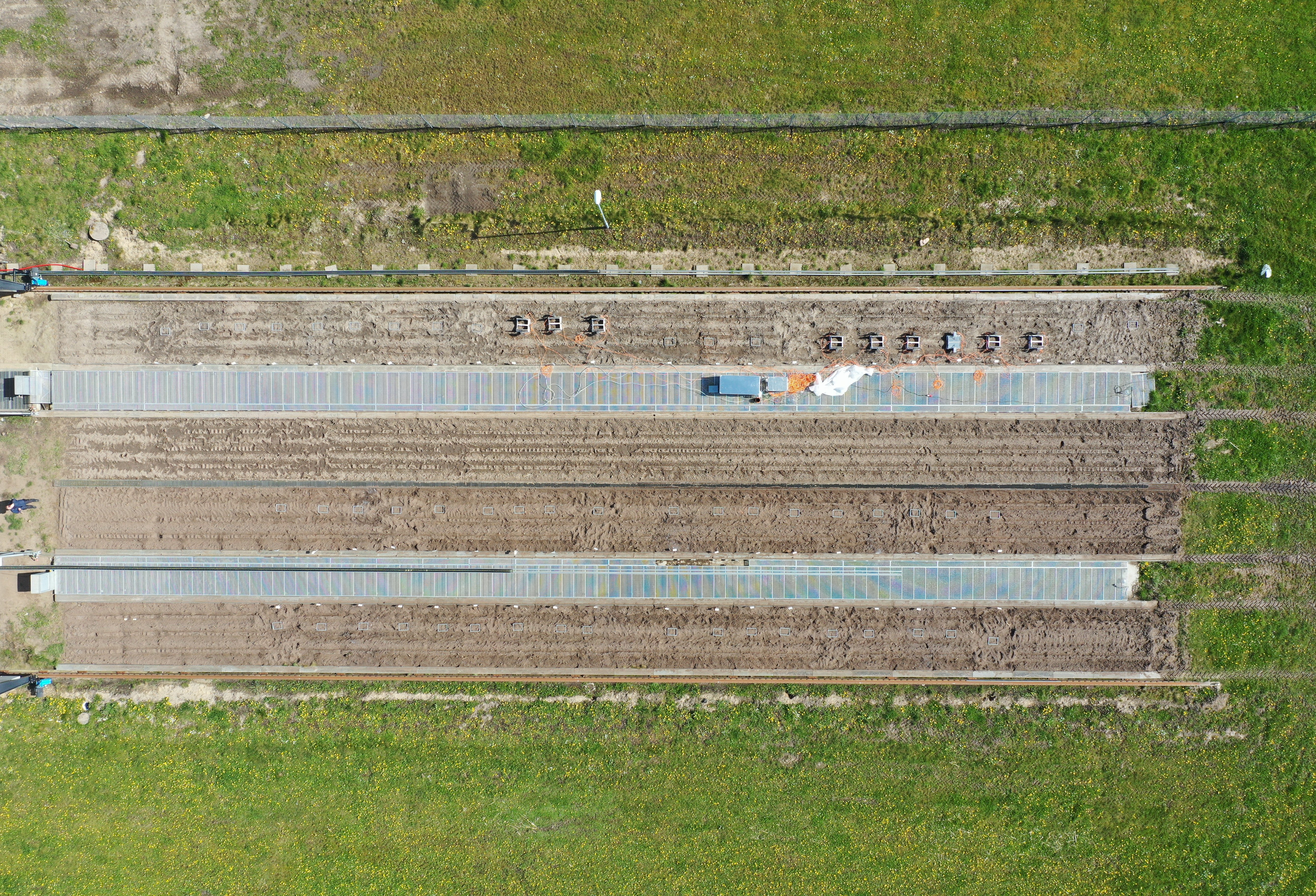Field experiments investigating the application of silicon fertilizer on potato crops
This month, Land-CRAFT started field experiments in Foulum as part of a project investigating the effect of silicon (Si) fertilizer on the drought resistance of potato crops


Potatoes, one of the most important global food crops, are highly susceptible to drought as they have small shallow roots and ineffectively absorb H2O. Potatoes are non-accumulators of Si. Other crops, such as maize, are active accumulators of Si.
Si acts as a bio-stimulant, boosting the existing biological processes in plants, for instance, optimizing nutrient use efficiency and offering protection against biotic/abiotic stresses. Applying Si fertilizer to soils may affect the water-holding capacity, increasing resistance to drought. The addition of Si could promote crop nutrient uptake, impacting soil N2O emissions and soil nitrate leaching. In maize crops, the presence of Si, amongst other effects, decreases water transpiration losses and increases root growth. In turn, this increases water and nutrient uptake and increases nutrient use efficiency.
That Si acts in this way raises the question of whether Si can alleviate potato drought stress, whilst also mitigating N2O emissions. Land-CRAFT has started field experiments in Foulum to investigate this question.
This experiment is being run with partners from the Leibniz Centre for Agricultural Landscape Research (ZALF), Helmholtz Munich, and Karlsruhe Institute of Technology (KIT).